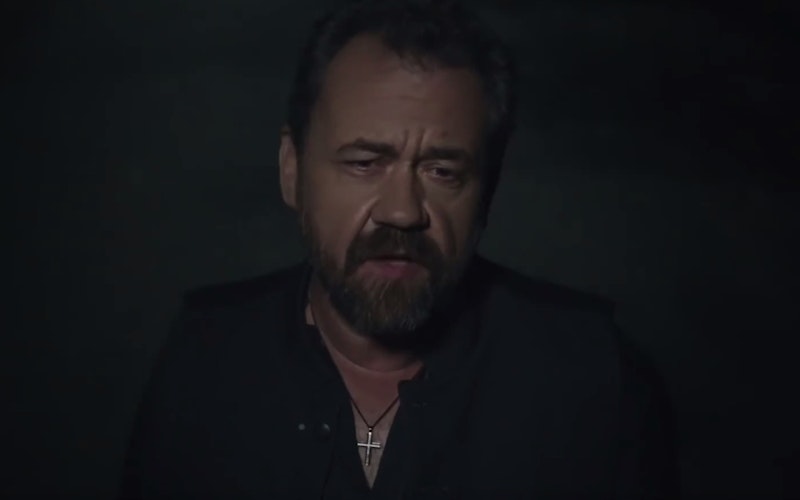
Music
The Divided Heart of Tyminski’s Southern Gothic
It’s rare that the first lyrics of the first song on a new album are enough to keep me listening straight through. But Tyminski’s “Southern Gothic,” from the album of the same name, has done just that.
Blackbird on the old church steeple
Spanish moss hanging in the setting sun
Every house has got a Bible and a loaded gun
We've got preachers and politicians
Round here it’s kinda hard to tell which one
Is gonna do more talking with a crooked tongue
Talk about a hook! Those six lines channel all of the best elements of Southern Gothic literature: spooky settings, decrepit architecture, twisted irony, shady characters, and a scathing rebuke. And he’s just getting started.
“This town's got the Good Lord shakin' his head,” the man with the perfectly American tenor twang sings, “Lookin' down thinking we ain't heard a word he said.”
Considering the scary misrepresentations of Christianity dominating the American political scene at the moment, we’re long overdue for an old-fashioned Southern Gothic critique. This unlikely mash-up of pop production, dance-y loops, twangy samples, and radio-ready hooks—along with Tyminski’s trademark voice and thoughtful, Christ-haunted lyrics—manages to work on both a commercial and prophetic level.
Dan Tyminski cut his teeth in the roots group Lonesome River Band and later became a critical ingredient in Alison Kraus and Union Station’s success. He then hit the mainstream when he was cast as the singing voice of George Clooney’s character in O Brother, Where Art Thou. “Man Of Constant Sorrow,” from the soundtrack, took Americana music to an entirely new place and seemingly helped expand Tyminski’s imagination about the value of musical experimentation and reinvention. In 2013 he accepted an invitation from Swedish producer Avicii (Tim Bergling) to be the featured voice on an EDM/pop song called, interestingly, “Hey Brother.” Perhaps it’s not surprising, then, that he’s decided to blend electro-pop production and a bluegrass aesthetic on Southern Gothic, his solo debut.
We’re long overdue for an old-fashioned Southern Gothic critique.
In Tyminski’s hands, the results sound nothing like a novelty. Where pop country bands like Florida Georgia Line take the twang out of their music in order to sound more commercial, Tyminski leans as hard into his Americana roots vocally as he does into his programmed grooves. The tracks are boldly clubby, while Tyminski’s voice is as true as ever. In lesser hands this might come off as a gimmick, but Tyminski embraces the extremes—the pop and the twang—and finds a surprisingly effective thread connecting the two. Add in flawless melodies and lyrics that reflect real life and you have an album that crosses genre lines with intention and integrity.
There are also theological implications to this sonic mash-up. In their incongruous construction, the tracks on Southern Gothic reflect the incongruity within the human heart. Tyminski is, effectively, a “double-minded man”—musically and lyrically. “Breathing Fire” works as an echo of Romans 7, where the Apostle Paul meditates on his sinful nature. (“I do not understand what I do. For what I want to do I do not do, but what I hate I do.”) Locked into a stomping beat, his vocals stacked to the ceiling, Tyminksi expresses something similar: “Is it something in the water or just my DNA / That makes a Sunday morning saint out of this old piece of clay? / Do I make another promise or pray a sinner’s prayer? / Do I reach out for redemption or do I even care?” This spiritual angst can be found elsewhere on the album. He contemplates self-destructive self-medication on “Devil Is Downtown” and the futility of self-reliance on “Hollow Hallelujah.” He conjures Proverbs and Ecclesiastes on “Temporary Love” and laments a toxic relationship by comparing a woman to methamphetamine in “Perfect Poison.”
Southern Gothic isn’t entirely a sullen, haunted affair. There are effervescent songs on the hopeful side of love (“Good For Your Soul,” “Wailing Wall”) and bluesy riffs on love lost (“Gone,” “Wanted”), most of which use at least some kind of biblical reference to make their point. The set closes, somewhat anticlimactically, with a keys-and-strings ballad that admits to the emotional devastation following a breakup. “Numb” confesses, “I can’t feel anything,” an apt reminder that as precious as we tend to consider them, our feelings are not always the most reliable guide in this life.
Tyminski throws himself into musical, spiritual, and relational contrasts and comes out the other side with a mature and thoughtful set of songs that, not unlike the Southern Gothic literature of Flannery O’Connor, is at once entertaining, a personal confession, and a prophetic challenge. Southern Gothic proves that country music with a pop edge doesn’t have to be stupid, and that a biblical understanding of the human condition is great fodder for a master songwriter.
Topics: Music, Culture At Large, Arts & Leisure